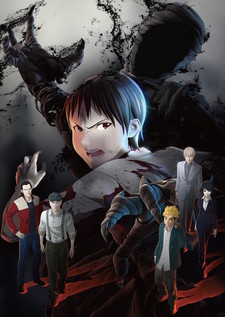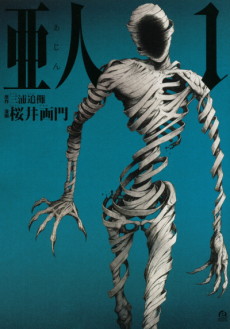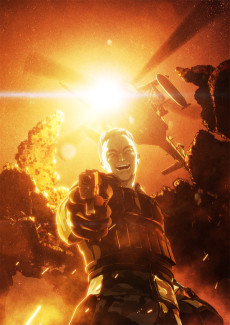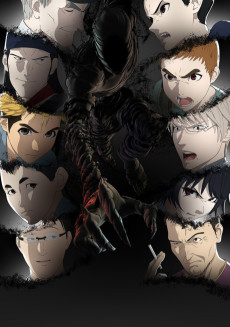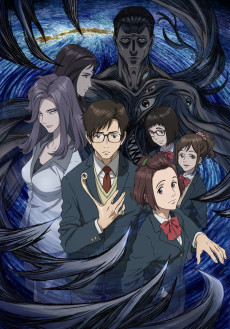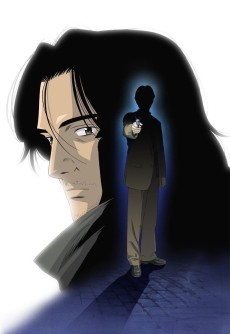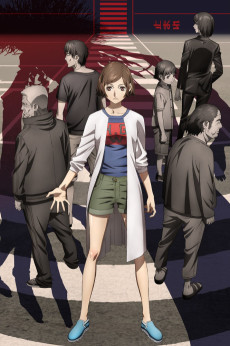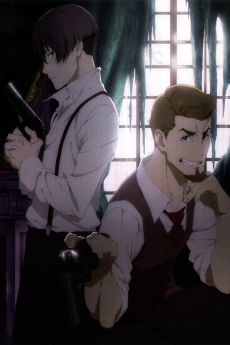AJIN
STATUS
COMPLETE
EPISODES
13
RELEASE
April 9, 2016
LENGTH
24 min
DESCRIPTION
Kei Nagai’s body should have died when a truck slams into his body, but instead, he finds himself resurrected with all of his wounds healed. Now revealed to be an Ajin, one of a mysterious new breed of immortal demi-human, he’s been marked with an international bounty, and in the eyes of the world, Kei is a specimen to be taken by any means possible. Now he’s on the run, and his only hope is to discover the terrifying secrets behind his new abilities before he’s forced to use them in battle!
(Source: Sentai Filmworks)
CAST
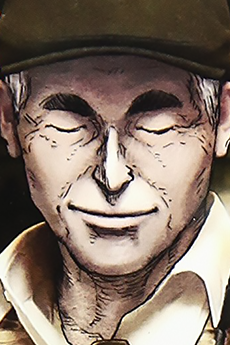
Satou
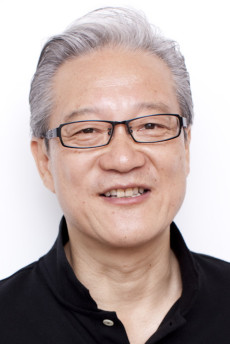
Houchuu Ootsuka
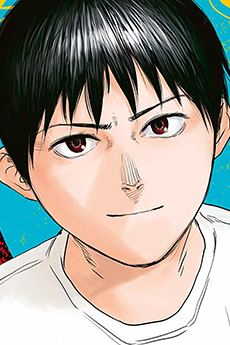
Kei Nagai
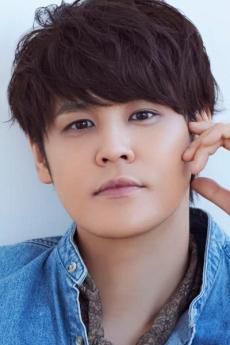
Mamoru Miyano
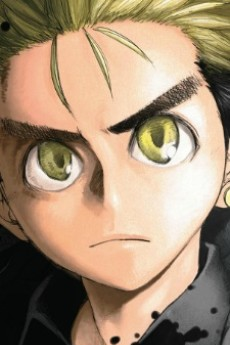
Kaito
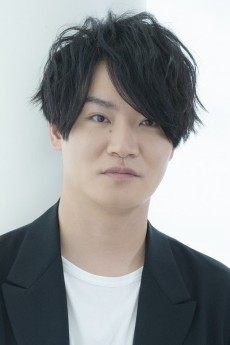
Yoshimasa Hosoya
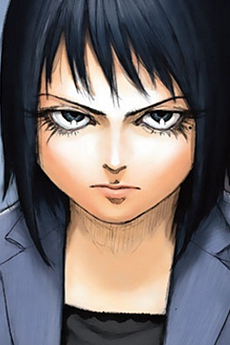
Izumi Shimomura
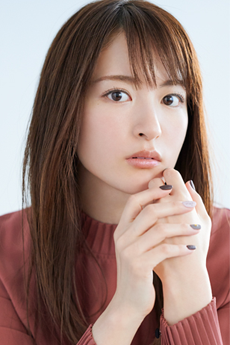
Mikako Komatsu
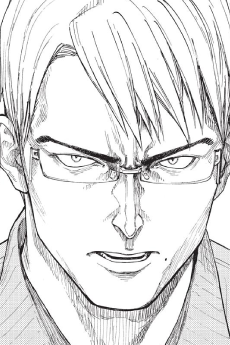
Yuu Tosaki
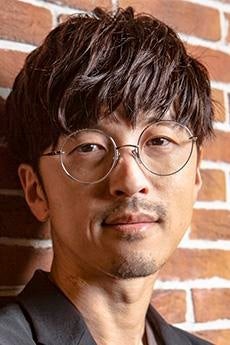
Takahiro Sakurai
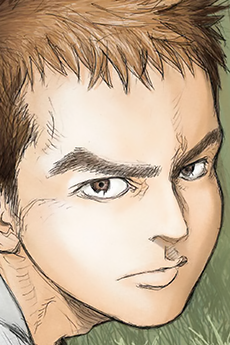
Kou Nakano
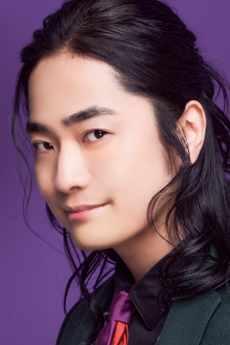
Jun Fukuyama
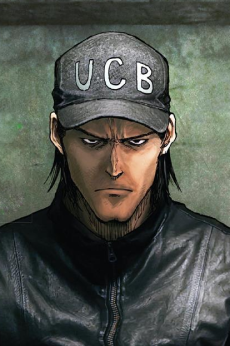
Kouji Tanaka
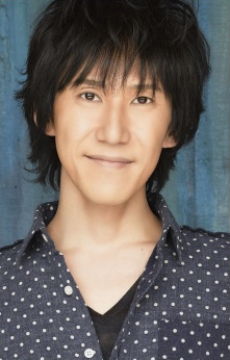
Daisuke Hirakawa
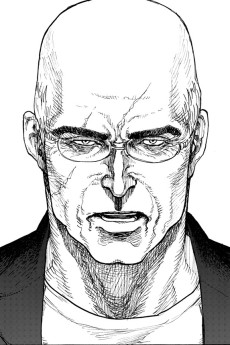
Hirasawa
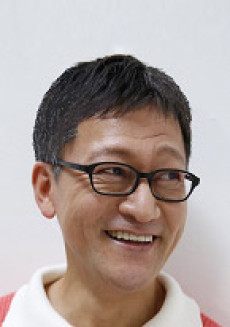
Atsuyoshi Miyazaki
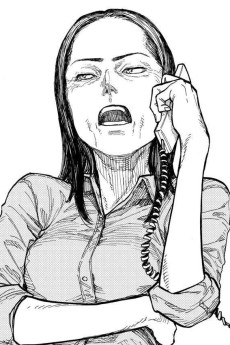
Ritsu Nagai

Youko Soumi
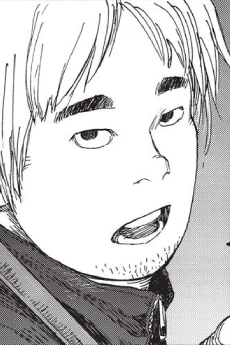
Masumi Okuyama
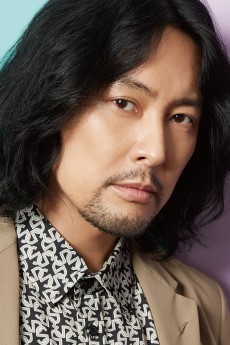
Hiroyuki Yoshino
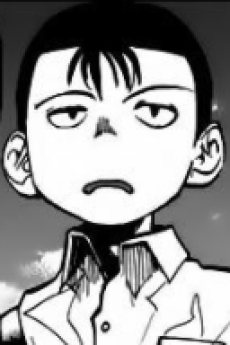
Watanabe
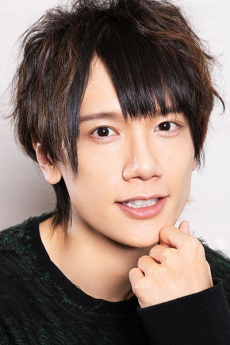
KENN
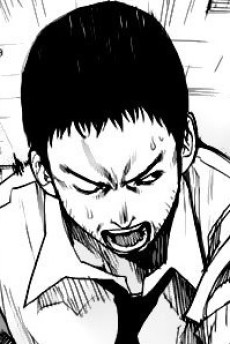
Araki
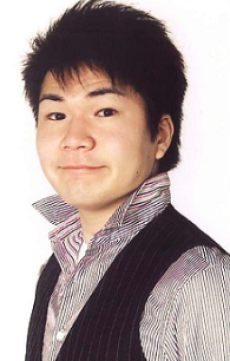
Tooru Sakurai
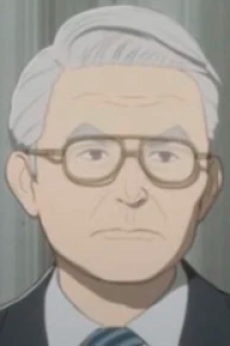
Mitsuyoshi Hashiguchi
EPISODES
Dubbed
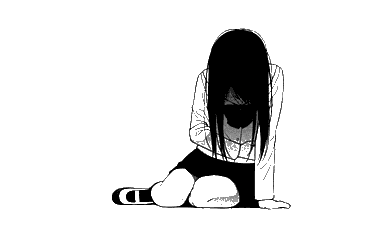
Not available on crunchyroll
RELATED TO AJIN
REVIEWS

Warptoon
60/100A show with a great premise, traps itself within three characters of the same coin.Continue on AniListDisappointment is a common feeling when observing something that you have high or even mild expectations for. As one gets older, I believe that many individuals learn to dampen expectations, in all areas of life. But that does not mean we are immune to being disappointed in something all over again. For myself, Ajin is one scenario of disappointment. A show that had an interesting premise and manga background, being created by Polygun Studios whose Knights of Sidiona was a mild surprise for me. But in the ways that Knights succeeded, Ajin has stumbled on itself repeatedly turning my viewing of the show into one of a burden rather then one of anticipation.
Ajin tells the story of a boy, Nagai Kei, who finds out he is a “demi-human” or Ajin. These demi-humans are essentially individuals that appear to be immortal, while possessing a handful of abilities. Within the journey of the show, we are treated to Kei’s transition from overwhelmed teenager with powers, to an ajin who has some slight control of his new self.
However, Kei is an emotionally amoral and selfish person, who is only concerned with being a “good human”. This becomes problematic for the show as it attempts to weave a story of three parties: Satou an Ajin who wants to start a war, the government and private companies that want to profit from brutal Ajin experiments, and Kei’s quest to be left alone. There are a handful of other side characters in the show, but they disappear so quickly it feels as though they are tossed aside as trash once they have fulfilled their portion of the story.
The show yearns to be an ambitious attempt at the age old question of what it means to be human, and the struggle of humanities beast within. But the show goes out of its way to make the audience feel unconnected to any character in the story. Satous characterization as a mysterious manipulator, comes off as just a man who loves to murder. Tosaki –the shows representative of the governments side– is given small quirk’s that disappear after one episode, along with a wife in a medical situation subplot that may or may not be motivating him to capture Ajin. We as the audience don’t know for certain because the information the show convey’s is too obtuse, or poorly represented to feel confident in making such an assumption.
All of this just tells me that the show and it’s characters are selfish. Kei, Satou and Tosaki all want something and don’t care how they obtain their goal, just so long as they get their own personal happiness. The show wants a dark universe where the three points of view don’t contrast each other in black and white. Instead the show presents three views on different shades of gray, without anything to act as a counter balance to it all.
This ultimately made the show feel like a chore to sit through. Individually the characters work, but presented as the three main view points of the story and the whole show collapses under the monotony of murder, and lugubrious insinuations that are offered. Again, this is not to say the show is incomprehensible, because I believe the premise of the show is interesting. But I couldn’t recommend this show when I know that there are a handful of other stories that have already successful examined the same themes as Ajin.
Things of Interest
The 3D animation may bother some, but I personally had no issues with it. It did not distraught me when watching the show.The lack of music or even a notable theme really disappointed me. I found myself wanting a background music to plot exposition but I find myself struggling to recall anything noteworthy.
I recommend giving the manga version of the story a chance. It could be that the pacing and overall all tension benefit from this format as opposed to a show.

Logia
70/100If you enjoy things like Tokyo Ghoul and Parasyte then this is for you!Continue on AniList__Story__ To say that the story is unique is an over statement. The only thing that sets this a part is the shading that the studio uses. It has similar vibes from other shows like Tokyo Ghoul and other symbiotic/parasitic backgrounds. It tells the story of a world that 2 types of human beings exist. Those that are Ajin and those that are not. Ajin are humans that are either aware of not that they have Invisible black matter that come alive either through reverse command (Think of it as reverse phycological instructions - A stubborn entity that will only do as it's told when you ask it the opposite) and do the bidding of its Host. I like this concept as it's not something i have seen anywhere else. It's beautifully done and not like many other animes out there. The Antagonist is built up on hatred of mankind and wants to Conquer the world. The Protagonist wants to stop this guy and gains the support of human and ajin friends. Although the story is okay it isn't compelling enough to give it much more than 6/10 __ Animation__ I have to say, i like the fact it uses the shading style in this series but it does take a little while to adjust to. It may seem like a little delayed in frame rate (Or at least that is my impression of it). I believe the studios intention was to create something standalone from any other anime series and they have in a way captured a love/hate audience in some cases. I gave it a chance and watched it through. But be prepared to adjust to this different style. 7/10 __Sound__ The Opening music and ending tracks are decent and have enjoyed listening to them (without skipping to the anime) several times. The sound the IBM's make is cool as well. 8/10 __ Characters__ The characters are cool. However i feel that there isn't a lot of time spent on building up a back story for them. In some cases we get this from the protagonist and supporting characters but what i get from the series is thrown into action where you can just about learn of the IBM's and Ajin Hosts to enjoy watching it. They could have spent a little more time on character building but i guess you don't get a lot of time to play with in a 13 episode series. 6/10 __Overall__ I gave this anime an overall rating of 7/10 and would recommend this to others. Give it a chance. 

Meistro
88/100An adrenaline thrill ride that features a unique sociopathic hero lacking any moral justificationContinue on AniListAjin: Demi-Human (2016)

Upon the 21st Century's Golden Age of Television around the early 2000s, antiheroes became a prominent figure in media entertainment once again. From Mad Men to The Sopranos, storytelling saw a drastic change in the way we perceive heroism in the modern grittier era. Japanese animation, on the other hand, have always embraced antiheroes as part of their storytelling, but it was not until the late 2000s that sociopathic antiheroes became more prominent and even embraced as a figure worthy of admiration. Characters like Light Yagami from Death Note were no longer the traditional villain, but the main protagonist whose fans have even considered him to be in the right.
By the time the 2010s came around, we witnessed several anime entries that were far more subversive of the more traditional heroic tales like Attack on Titan, Psycho-Pass, Tokyo Ghoul, Terror in Resonance, and of course, Ajin. These anime are far more flexible when showing moral righteousness and ambiguity. This has been around in anime before, but the 2010s saw a significant surge in such gritty psychological anime. Of course, only one title among these left an impact on me. As I've mentioned before, it's like a hybrid of the best parts from those aforementioned anime titles, but I feel like that's simplifying a bit how I came to feel such satisfaction from this anime. Let's start at the beginning.
Around five years ago, I've seen almost 400 anime titles, most of which consisted of popular mainstream "must-watch" titles like FMA:B, Death Note, Steins;Gate, Cowboy Bebop, Ghost in the Shell, and many more. I felt like I hit a wall at that time and nothing really satisfied me the way those classic titles did, leaving that impact of having experienced a polished story with the right balance of action, story and character (music too). So I started to search for more niched titles, specifically the more psychological stories that challenge the viewers' perceptions. When I stumbled upon Terror in Resonance, it felt like such a novel idea, a show with terrorists being the main protagonists, the "good guys" even (good luck pulling that off in America). But ultimately, it disappointed me when it entered the cliched territory of a melodramatic villain with a generic backstory. Without spoiling anything, it delves into your typical science experiment gone wrong/government cover-up. It all just felt so samey and lacked that genuine freshness, and the villain acting so hammy really didn't help. I don't particularly enjoy hammy villains.
Speaking of villains I couldn't take seriously, some time before my viewing of Terror in Resonance, I saw Tokyo Ghoul, which I only picked up because it reminded me of a favorite anime of mine, Shiki. The idea of the bad guys being as human as the human good guys wasn't anything new, but Shiki managed to pull it off in such emotional intensity through its showcase of humanity's hypocrisy and cruelty towards any one "different." Tokyo Ghoul, on the other hand, felt like a showcase of how pretentious the villains could act with their overdramatic speeches. The focus was off. It was a showy effort that turned it into an action-packed anime lacking any contemplation on the human condition. Feels like a kids show, but with gore.
But why am I explaining my gripes about these other anime in my Ajin review, you ask? Well, Ajin took those wasted potentials and polished it up into something far more engaging. Gone are the unnecessary megalomaniacle villains preaching (false) moral superiority and instead, we have a better focus here, a character study almost, of a sociopathic kid who is forced to reveal his true colors of being an amoral monster (long before his realization of being a literal one). It's like if we never gave Light Yagami the Death Note in the first place and just disrupt his status quo to see how his sociopathic side would react. Kei Nagai is a fascinating protagonist in the realm of storytelling, because usually, with selfish characters like him, the show would try and justify his existence by showing his good side. Ajin does that to some extent, but halfheartedly, focusing more on showing how hypocritical and, sometimes, terrifying Kei's actions are, especially towards his sister. The show was perfectly comfortable in placing an emotionless creature as the main hero without rectifying his behavior later on or spelling out just how morally wrong Kei really is to the audience either. He's simply there without plot armor or deus ex machina for us to observe him in the purest way.
Such an effective moral ambiguity could only achieved by one key element in the show: evil vs. evil vs. evil. There are literally no good guys between the three main factions in this series, whether it's Yu Tosaki (crazed government agent comfortable with torturing Ajins in science experiments, even if they're children) or Sato (militant rebel Ajin whose extreme methods made Malcolm X look like Mr. Rogers). That's why there's no forced or contrived moral preaching about who's in the right or wrong. Instead, we just get a satisfying battle royale to see who gets the upper hand without any distraction.
I feel like, with villains being the main characters, it can be more interesting and provocative because most of us know what the right thing to do is, the morally righteous actions, so to watch good-natured heroes perform actions we already know they'll do for the thousandth time can get... a little stale. But with villains like Light Yagami, I feel like we're scientists watching lab rats, waiting to see just how much more evil they can get, how extreme they can become, and how far they would go. Especially fascinating are the intelligent villains (like the truly intelligent ones, not those preaching Nietzsche nihilism) who create elaborate schemes to get away with their amoral actions. In a way, it's almost like a voyeuristic escapism, like watching a heist movie and fantasizing about getting easy money.
But aside from simply having an interesting character study, Ajin also taps into some relevant social themes, but not in a heavy-handed way that leaves the audience eye-rolling. There are subtle xenophobia themes of persecution against those who are different than you and also themes of looking the other way instead of speaking out against injustice, two subjects that I'm sure all of us could relate to today. This is not the anime's strongest suit, of course, since it's not something new in anime, but it's worth mentioning nonetheless, particularly how the themes aren't heavy-handed enough to distract. Even the torture scenes are mostly left to viewers' imagination instead of showing gratuitous gore for viewer satisfaction. I feel like such subtlety only strengthened the show's focus on the character analysis devoid of superficial story elements.
And even right until the end, even when the terrorists made their big explosive move, I feel like the show has always been rooted in the study of Kei and how he reacts to people as well as how people react to him. That one old lady who was sympathetic to him, along with Kei's storyline being moved to the remote villages, was a strong move that further examine how Kei's twisted logic works. He showed compassion for the old lady, not out of kindness, I feel, but out of some distorted logic that the elderly should be helped. I feel like that's how Kei's amoral mind works, defining his world and the people around him as statistics and data to be analysed. Fascinating.
But it's not all slow-burn character study, of course, as there's plenty of Ajin action and fight scenes. This is one of those shows like FMA:B that doesn't overcompensate with action scenes that they would become boring. Instead, almost every fight scene felt like it adds something important to the story rather than just being there for the sake of showing new Ajin moves. That being said, I really LOVE what they did with Kei in a surprise twist. It's pretty much a power-up cliche you would find in most shounen anime, but this was the one time I could overlook because of how satisfying it is.
And I think, it's only satisfying because in spite of all the hypocrisy and selfishness Kei has displayed, there's indeed a "good guy" to root for in this show. There has to be in any story, unfortunately, as it's a basic story structure that can't be broken, otherwise the audience would be left apathetic and hating everyone. Kei is the lesser of the three evils here, but only because of 1) the aforementioned twisted logic and 2) torturing children Ajins. Yeah. It's a given who to root for.
An honorable mention should be made to Kou Nakano, unfortunately the only good guy deuteragonist around. He's probably the only likable character in the entire show for obvious reasons, the classic shounen hero full of hot-blooded justice (and reckless impulse). Unfortunately for him, he's stuck in the wrong genre. It's almost like how the girls in Madoka Magica wouldn't have faced such a gruesome fate in a vanilla magical girl anime.
To close off this review, there's one more significant element I must mention: the music. So good. The opening is an appropriately exhilarating and fast-paced song that's memorable enough to compete against the likes of HxH (2011) and Tokyo Ghoul, but it's the ending theme where it truly shines, which is rare for an anime. The ending to each episode features a graphic montage of Ajin committing suicide to "reset" themselves, so it's a pretty emotionally-charged outro in all honesty. Being an anime ending theme, it's naturally a somber piece, but the melancholic tune here that describes the Ajins' loneliness in this world of insanity is truly fitting for the show.
★★★★½
Can't wait for season 2.
SIMILAR ANIMES YOU MAY LIKE
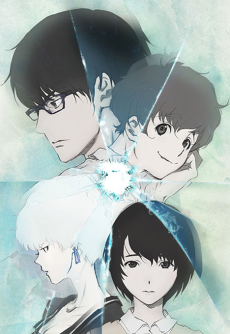 ANIME DramaZankyou no Terror
ANIME DramaZankyou no Terror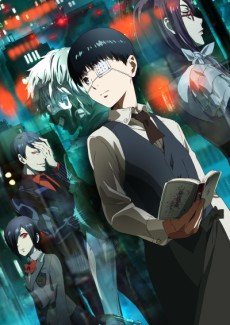 ANIME ActionTokyo Ghoul
ANIME ActionTokyo Ghoul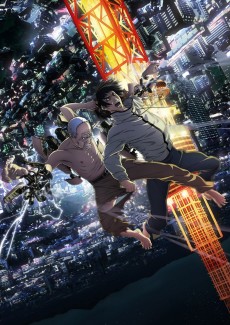 ANIME ActionInuyashiki
ANIME ActionInuyashiki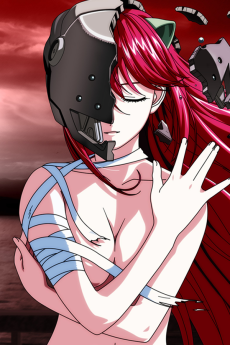 ANIME ActionElfen Lied
ANIME ActionElfen Lied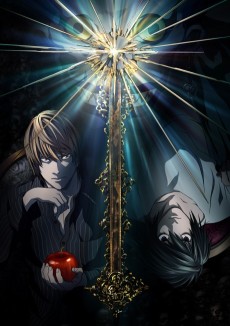 ANIME MysteryDEATH NOTE
ANIME MysteryDEATH NOTE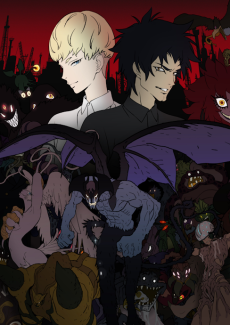 ONA ActionDEVILMAN crybaby
ONA ActionDEVILMAN crybaby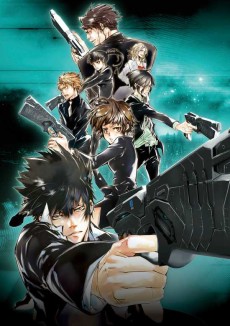 ANIME ActionPSYCHO-PASS
ANIME ActionPSYCHO-PASS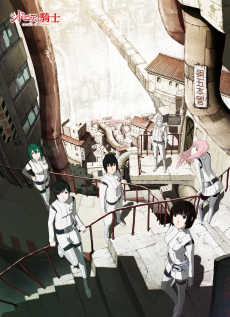 ANIME ActionSidonia no Kishi
ANIME ActionSidonia no Kishi
SCORE
- (3.55/5)
TRAILER
MORE INFO
Ended inApril 9, 2016
Main Studio POLYGON PICTURES
Trending Level 1
Favorited by 1,273 Users
Hashtag #亜人計画


